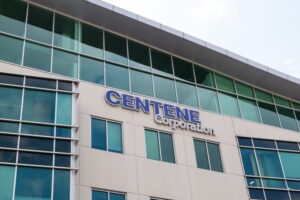
In a growing digital conflict, major websites such as Wikipedia and academic archives are ramping up efforts to combat AI bots that are increasingly perceived as “freeloaders” siphoning off valuable information. This battle against unauthorized data scraping is intensifying as these platforms strive to protect their content and maintain the integrity of their resources.
The rise of AI technologies has brought with it a surge in automated bots designed to extract data from online sources. While these bots can serve legitimate purposes, such as enhancing search engine capabilities or powering AI-driven applications, many website operators argue that they often operate without permission, undermining the sustainability of their platforms.
Understanding the AI Bot Phenomenon
The proliferation of AI bots has been fueled by the increasing demand for large datasets to train machine learning models. These bots are programmed to crawl the web, collecting vast amounts of information that can be used to improve AI algorithms. However, this practice raises significant concerns among content creators and website administrators.
According to industry experts, the primary issue lies in the fact that many AI bots do not adhere to the ethical standards of data usage. They often bypass restrictions set by websites, such as terms of service or robots.txt files, which are designed to regulate automated access. This has led to a growing sense of frustration and a call for stricter regulations.
The Impact on Content Providers
For platforms like Wikipedia, which rely on the collaborative efforts of volunteers, the unauthorized extraction of information by AI bots poses a serious threat. The Wikimedia Foundation, the organization behind Wikipedia, has expressed concerns that such activities could deplete their resources and discourage contributors.
“Our community invests significant time and effort into creating and maintaining high-quality content. When AI bots scrape this information without permission, it undermines the value of our work,” said a spokesperson for the Wikimedia Foundation.
Similarly, academic archives that house valuable research papers and scholarly articles are feeling the pressure. These institutions often depend on subscriptions and licensing fees to fund their operations. The unauthorized use of their content by AI bots can lead to financial losses and threaten their ability to continue providing access to critical academic resources.
Efforts to Combat Unauthorized Data Scraping
In response to these challenges, websites are implementing a range of strategies to protect their content. Some are investing in advanced bot detection technologies that can identify and block unauthorized scraping attempts. Others are exploring legal avenues to hold offenders accountable.
According to a recent report by the cybersecurity firm Imperva, the use of AI-driven bot mitigation solutions is on the rise. These tools leverage machine learning algorithms to distinguish between legitimate users and malicious bots, offering a more robust defense against unauthorized data extraction.
“As the sophistication of AI bots increases, so too must our defenses. It’s a constant game of cat and mouse,” noted a cybersecurity expert from Imperva.
Legal and Ethical Considerations
The legal landscape surrounding AI bots and data scraping is complex and varies by jurisdiction. While some countries have enacted laws to regulate data scraping, others have yet to address the issue comprehensively. This inconsistency poses challenges for website operators seeking to protect their content on a global scale.
Ethically, the debate centers around the balance between open access to information and the rights of content creators. Proponents of AI technologies argue that data scraping can drive innovation and improve services, while critics emphasize the need for responsible data usage and respect for intellectual property rights.
The Future of AI and Data Scraping
As AI technologies continue to evolve, the tension between innovation and regulation is likely to persist. The ongoing battle against unauthorized data scraping highlights the need for a collaborative approach, involving technology companies, policymakers, and content creators.
Looking ahead, the development of industry standards and best practices could play a crucial role in addressing these challenges. By fostering dialogue and cooperation, stakeholders can work towards solutions that balance the benefits of AI with the protection of valuable online content.
Ultimately, the future of AI and data scraping will depend on the ability of the digital community to navigate these complex issues and find common ground. As the debate unfolds, the importance of ethical considerations and the protection of intellectual property will remain at the forefront of discussions.







